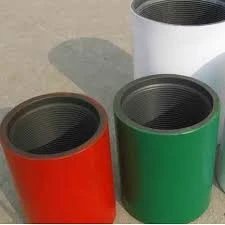- Afrikaans
- Albanian
- Amharic
- Arabic
- Armenian
- Azerbaijani
- Basque
- Belarusian
- Bengali
- Bosnian
- Bulgarian
- Catalan
- Cebuano
- Corsican
- Croatian
- Czech
- Danish
- Dutch
- English
- Esperanto
- Estonian
- Finnish
- French
- Frisian
- Galician
- Georgian
- German
- Greek
- Gujarati
- Haitian Creole
- hausa
- hawaiian
- Hebrew
- Hindi
- Miao
- Hungarian
- Icelandic
- igbo
- Indonesian
- irish
- Italian
- Japanese
- Javanese
- Kannada
- kazakh
- Khmer
- Rwandese
- Korean
- Kurdish
- Kyrgyz
- Lao
- Latin
- Latvian
- Lithuanian
- Luxembourgish
- Macedonian
- Malgashi
- Malay
- Malayalam
- Maltese
- Maori
- Marathi
- Mongolian
- Myanmar
- Nepali
- Norwegian
- Norwegian
- Occitan
- Pashto
- Persian
- Polish
- Portuguese
- Punjabi
- Romanian
- Russian
- Samoan
- Scottish Gaelic
- Serbian
- Sesotho
- Shona
- Sindhi
- Sinhala
- Slovak
- Slovenian
- Somali
- Spanish
- Sundanese
- Swahili
- Swedish
- Tagalog
- Tajik
- Tamil
- Tatar
- Telugu
- Thai
- Turkish
- Turkmen
- Ukrainian
- Urdu
- Uighur
- Uzbek
- Vietnamese
- Welsh
- Bantu
- Yiddish
- Yoruba
- Zulu
aluminum pipe couplings and fittings
Aluminum Pipe Couplings and Fittings An Essential Overview
Aluminum pipe couplings and fittings are critical components in various industrial and construction applications. Known for their lightweight nature, durability, and resistance to corrosion, aluminum fittings are widely used in the transport of fluids and gases in numerous sectors, including plumbing, HVAC, and manufacturing. This article will explore the advantages of aluminum pipe couplings and fittings, the different types available, and their applications.
Advantages of Aluminum Fittings
One of the most significant benefits of aluminum pipe couplings and fittings is their lightweight quality. Aluminum is less dense than many other metals, which makes transportation and handling easier during installation processes. Workers can manage larger diameters of piping without the added strain that heavier materials, like steel, would impose.
Another advantage is the corrosion resistance of aluminum. Unlike iron or steel, which can rust when exposed to moisture, aluminum naturally forms a protective oxide layer that shields it from corrosion. This property allows aluminum fittings to maintain their integrity over time, especially in environments prone to moisture or chemicals, making them highly suitable for outdoor and industrial applications.
The thermal conductivity of aluminum is also a critical factor that enhances its utility in different contexts. It can efficiently dissipate heat, making it an excellent choice for systems requiring heat management, such as HVAC applications. Furthermore, aluminum’s recyclability contributes to sustainability efforts, allowing for eco-friendly disposal options that reduce waste and pollution.
Types of Aluminum Couplings and Fittings
Aluminum fittings come in various shapes and sizes, each designed for specific applications. Common types include
1. Elbows Used to change the direction of piping by 45 or 90 degrees, aluminum elbows are essential in creating bends in a piping system.
aluminum pipe couplings and fittings

2. Tees These fittings are designed to connect three pieces of piping, allowing for fluid to flow in multiple directions. They come in various configurations, including equal and reducing tees.
4. Reducer Fittings These fittings allow for a smooth transition from a larger pipe diameter to a smaller one, facilitating flow changes within a system.
5. Flanges Flanges provide added strength and support when connecting pipes to various equipment. They are helpful in creating cleanouts and access points in a piping system.
Applications of Aluminum Pipe Couplings and Fittings
The versatility of aluminum pipe couplings and fittings makes them suitable for a range of applications. In the construction industry, they are frequently utilized in plumbing systems, where the lightweight and corrosion-resistant properties are invaluable. In HVAC systems, aluminum fittings play a significant role in connecting ductwork and ensuring optimal airflow while minimizing thermal losses.
Moreover, in the manufacturing sector, aluminum fittings are commonly employed in the assembly of various machinery and equipment, where effective fluid transfer is crucial. The automotive industry also benefits from aluminum pipe couplings, as they are used in coolant lines and fuel systems, where weight savings can enhance overall vehicle performance.
Conclusion
In conclusion, aluminum pipe couplings and fittings offer a multitude of advantages that make them indispensable in various industries. Their lightweight nature, corrosion resistance, and excellent thermal conductivity contribute to their widespread use in plumbing, HVAC, and manufacturing applications. As industries continue to evolve and innovate, the demand for high-quality aluminum fittings will likely grow, highlighting their essential role in modern engineering solutions. For anyone involved in industrial design or installation, understanding the specifications and applications of aluminum pipe fittings is crucial for ensuring efficiency and durability in any project.
-
Tubing Pup Joints: Essential Components for Oil and Gas OperationsNewsJul.10,2025
-
Pup Joints: Essential Components for Reliable Drilling OperationsNewsJul.10,2025
-
Pipe Couplings: Connecting Your World EfficientlyNewsJul.10,2025
-
Mastering Oilfield Operations with Quality Tubing and CasingNewsJul.10,2025
-
High-Quality Casing Couplings for Every NeedNewsJul.10,2025
-
Boost Your Drilling Efficiency with Premium Crossover Tools & Seating NipplesNewsJul.10,2025







